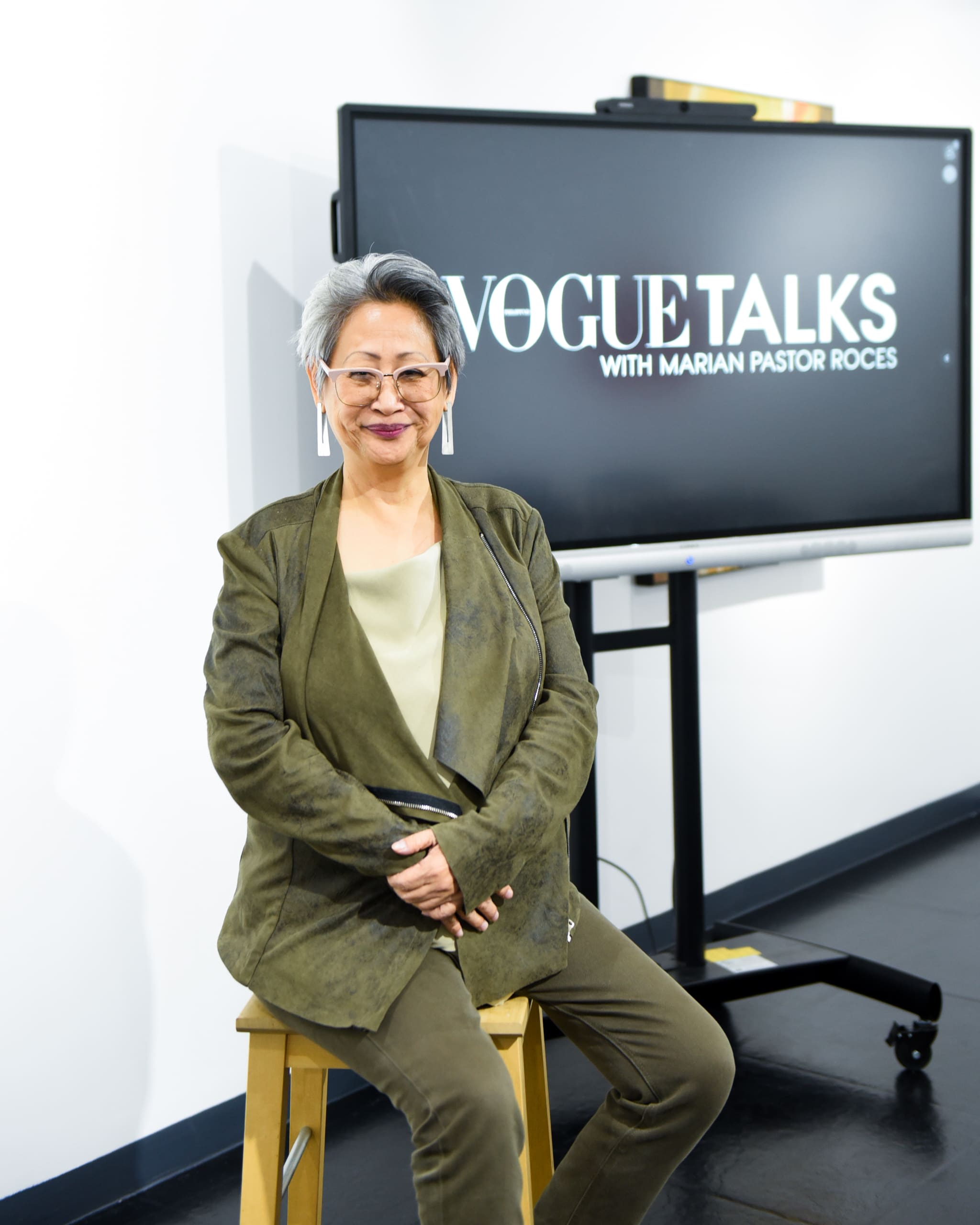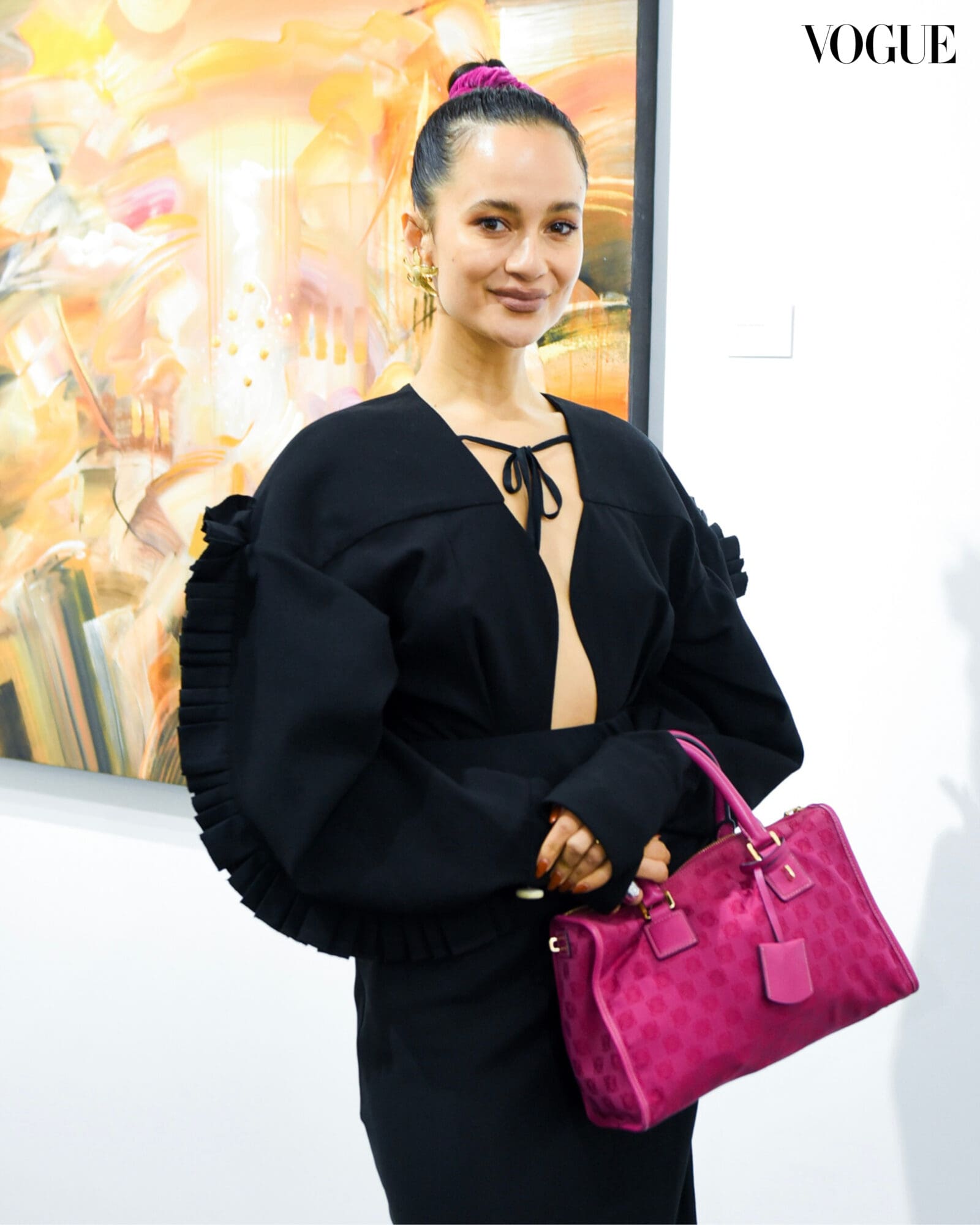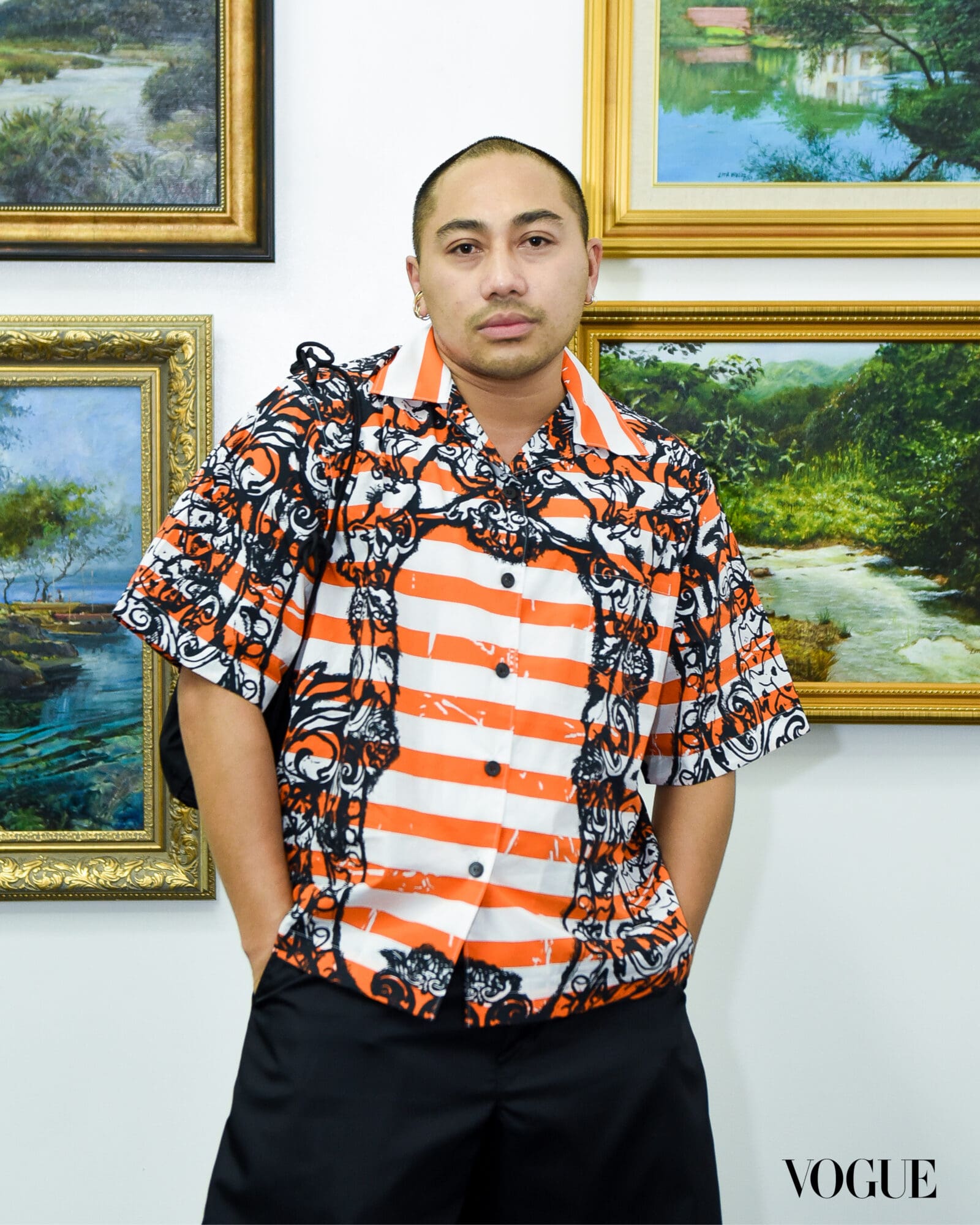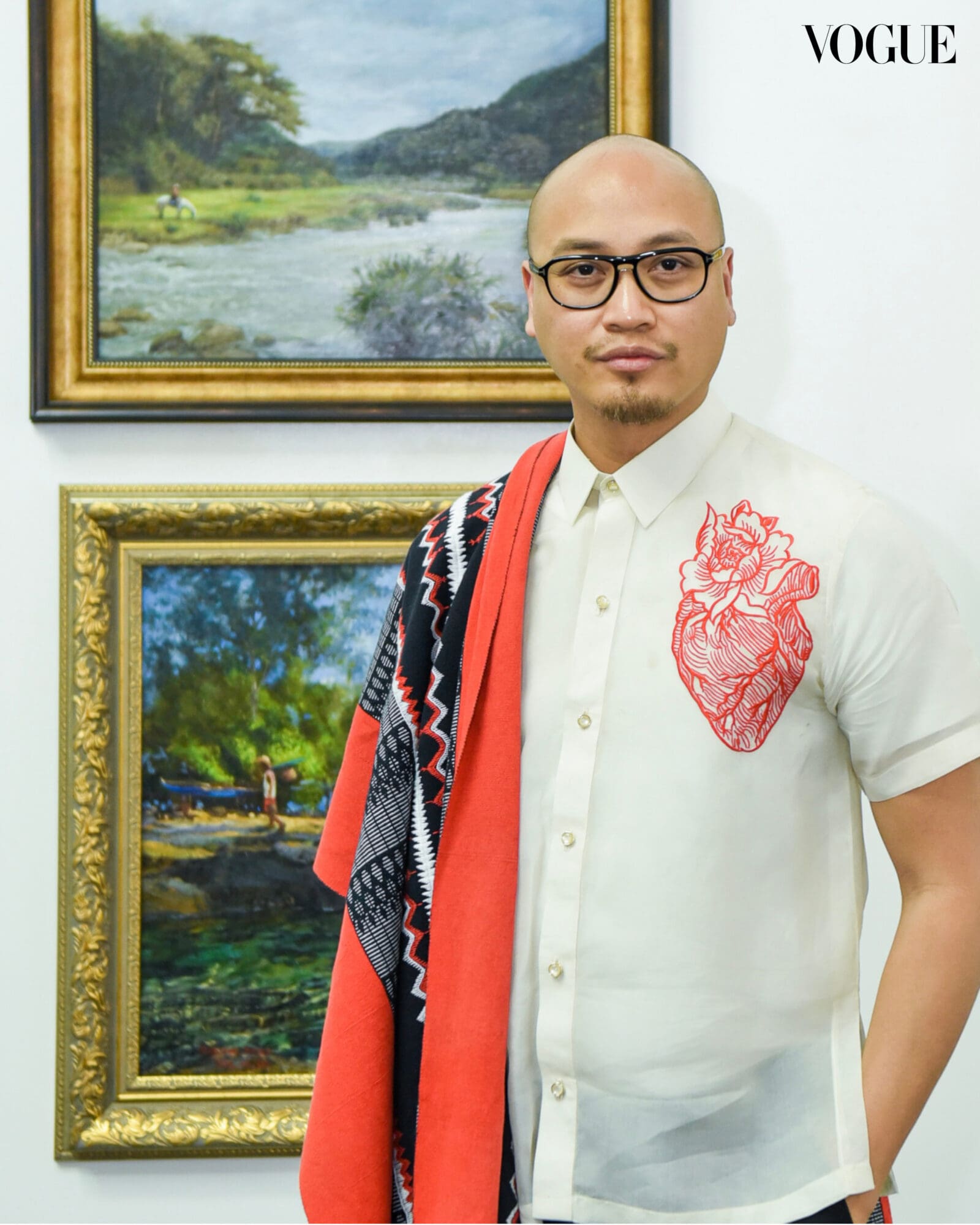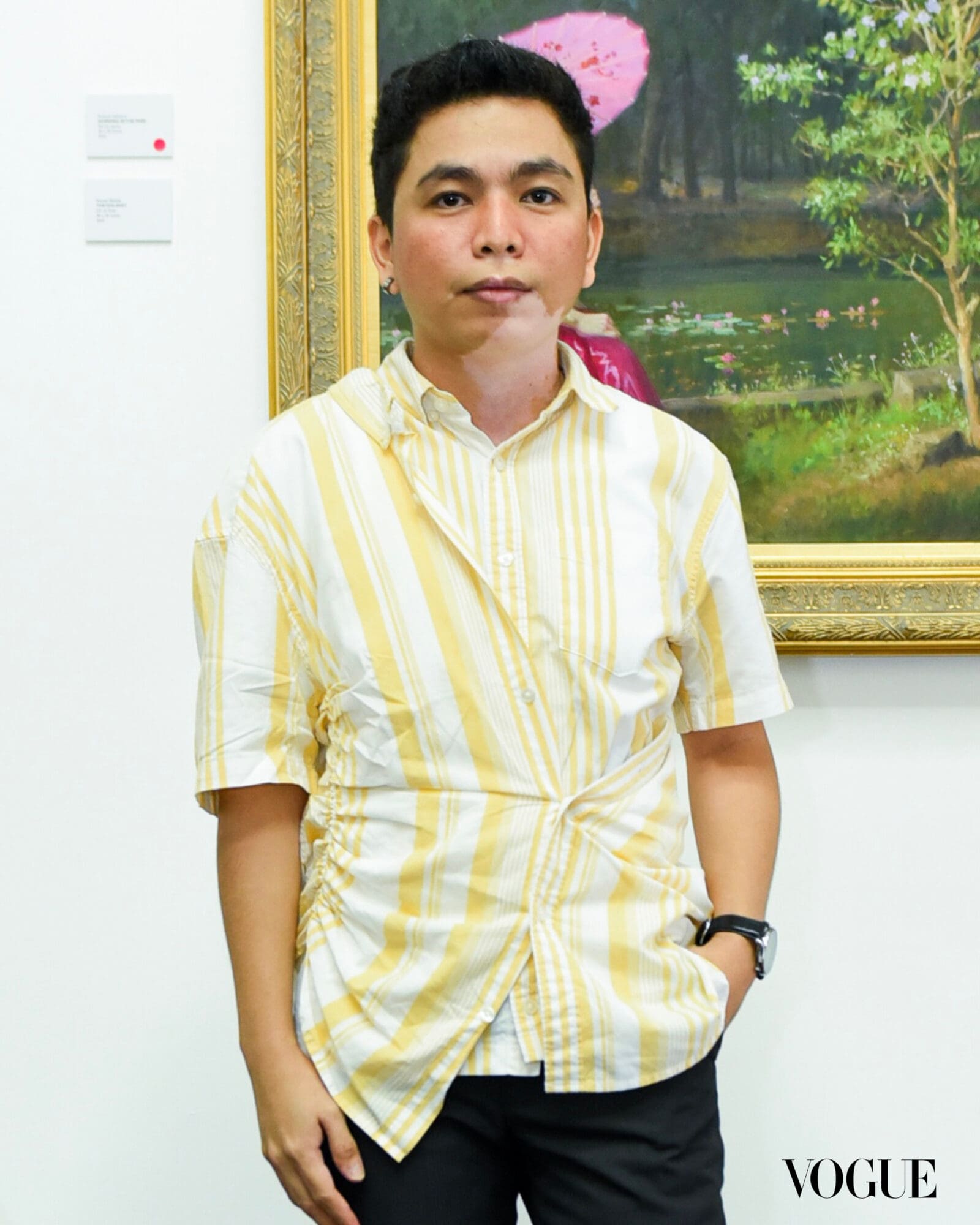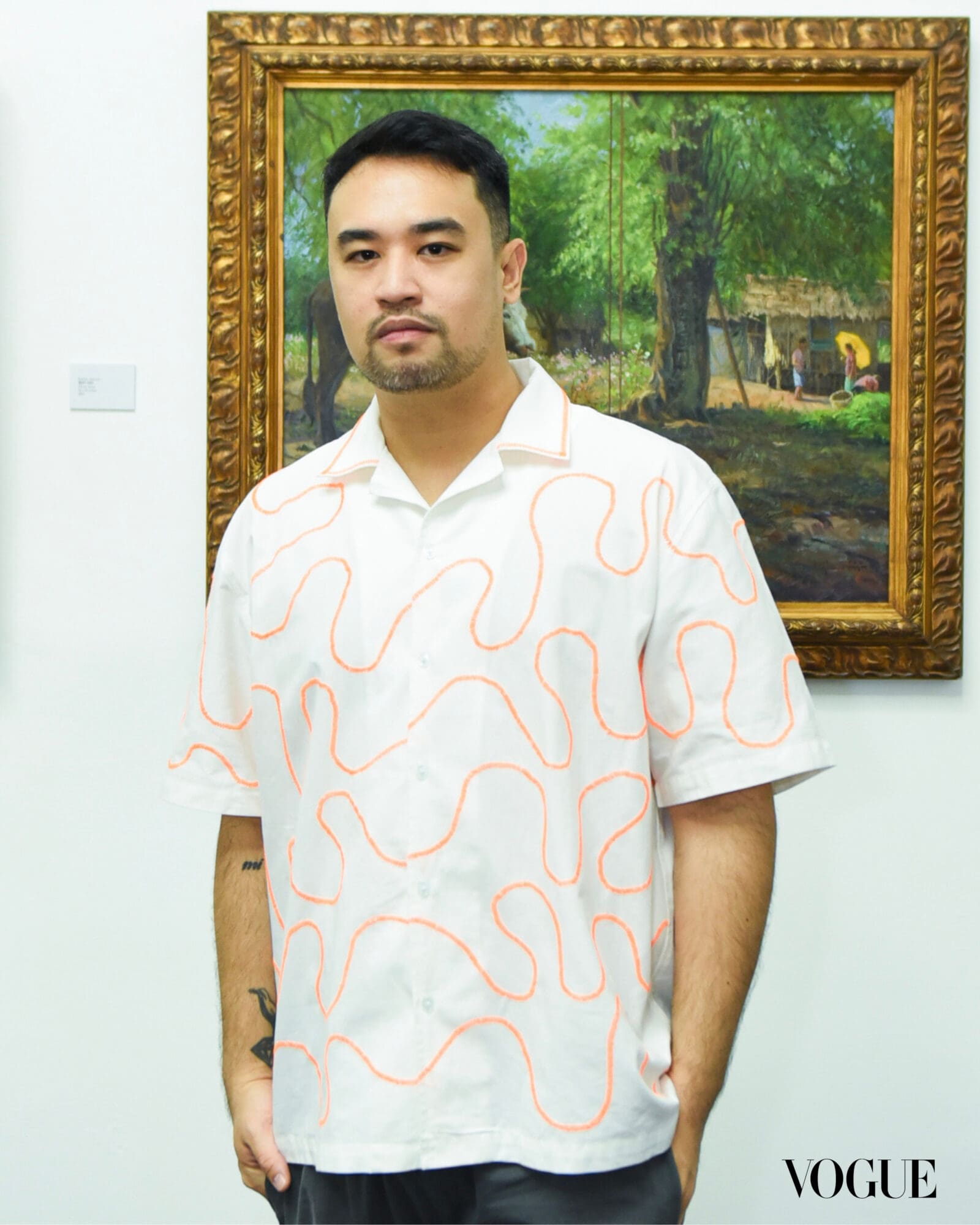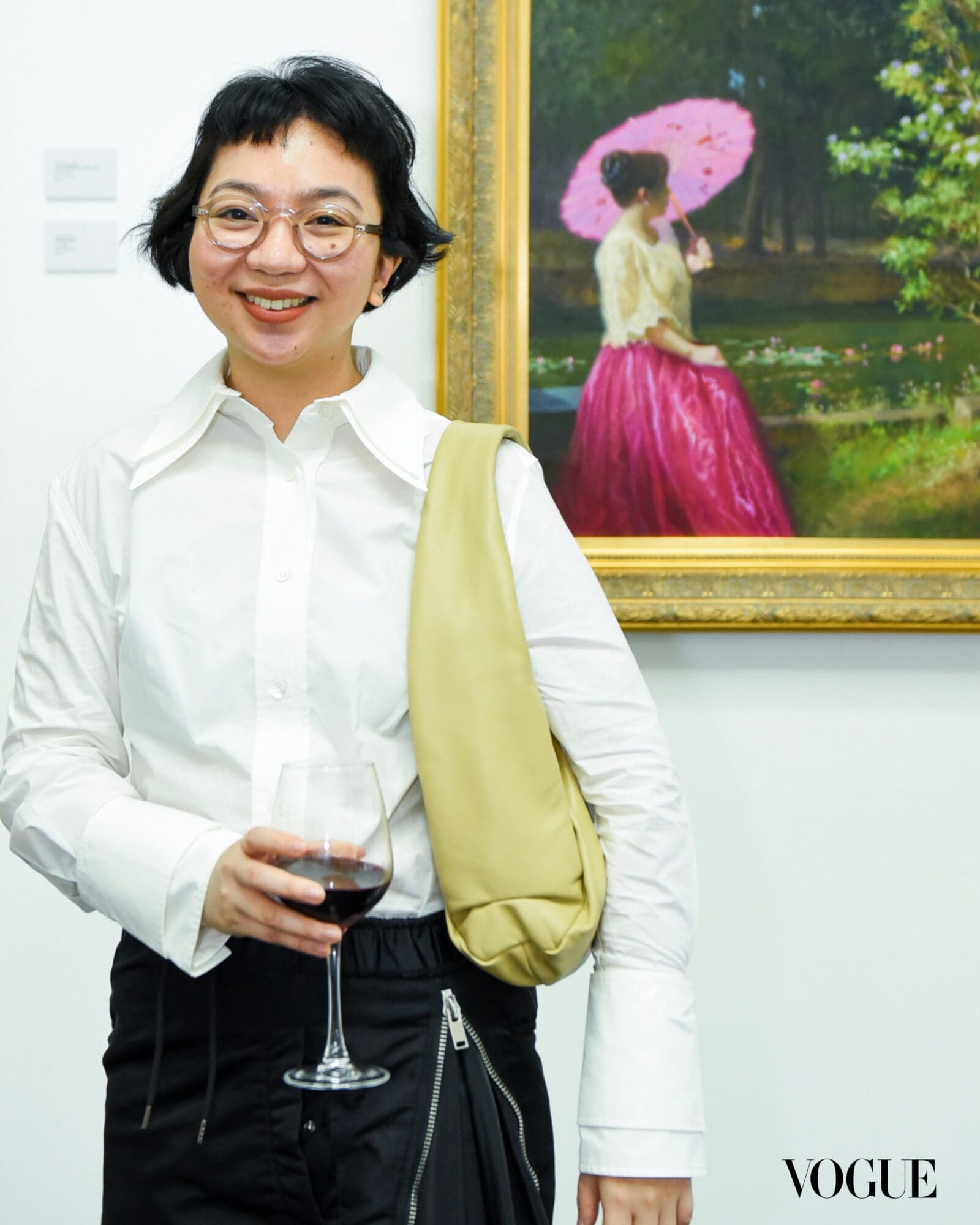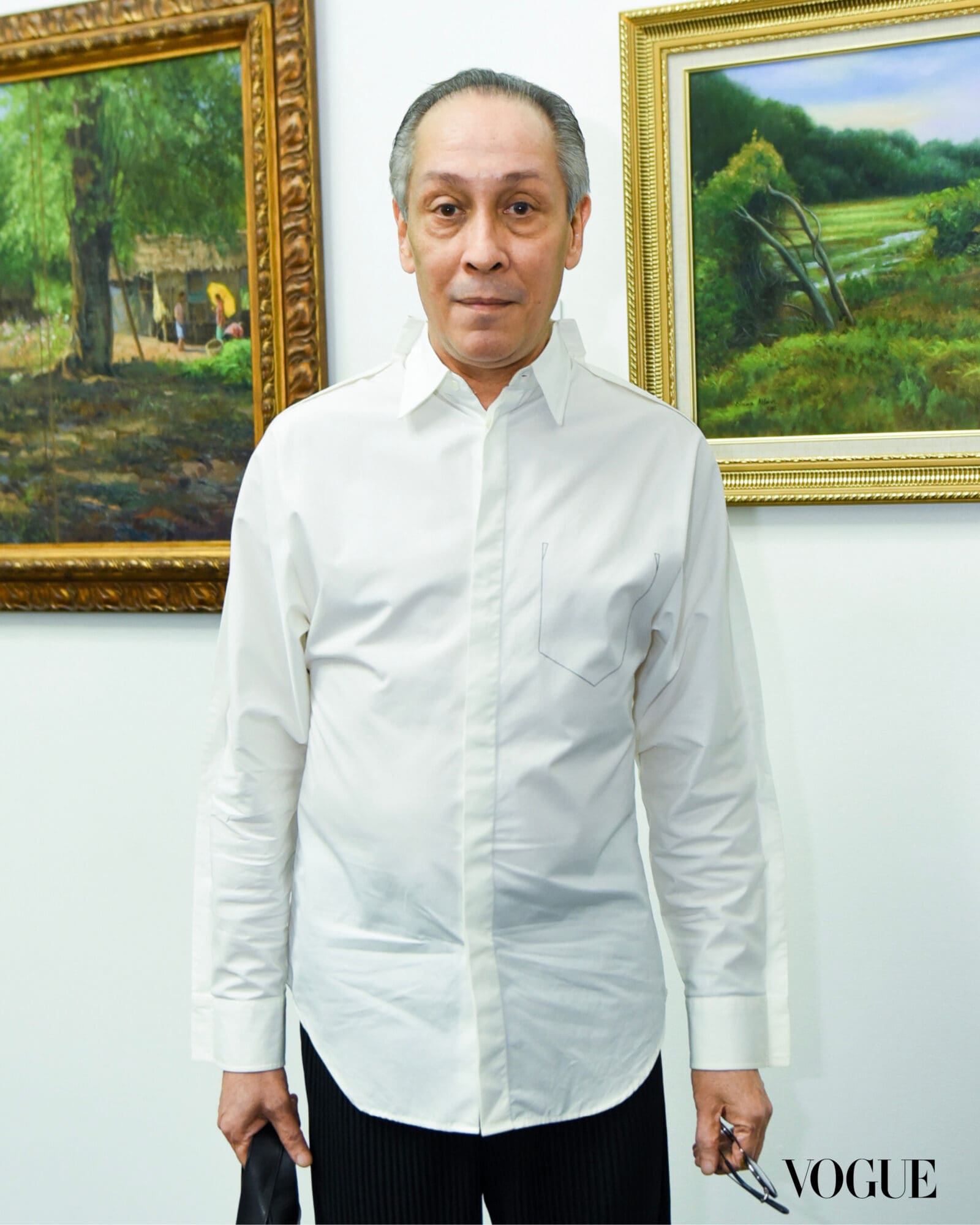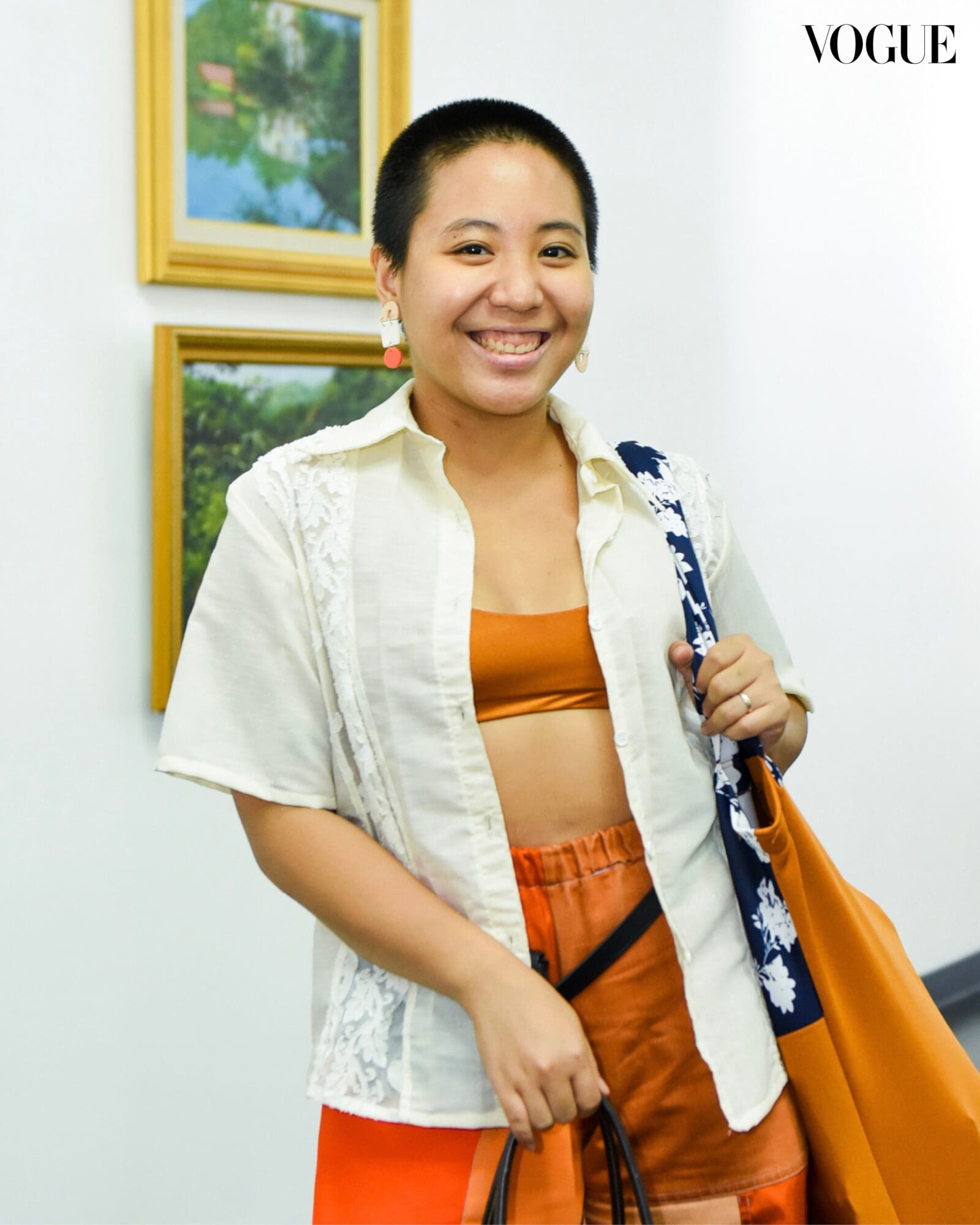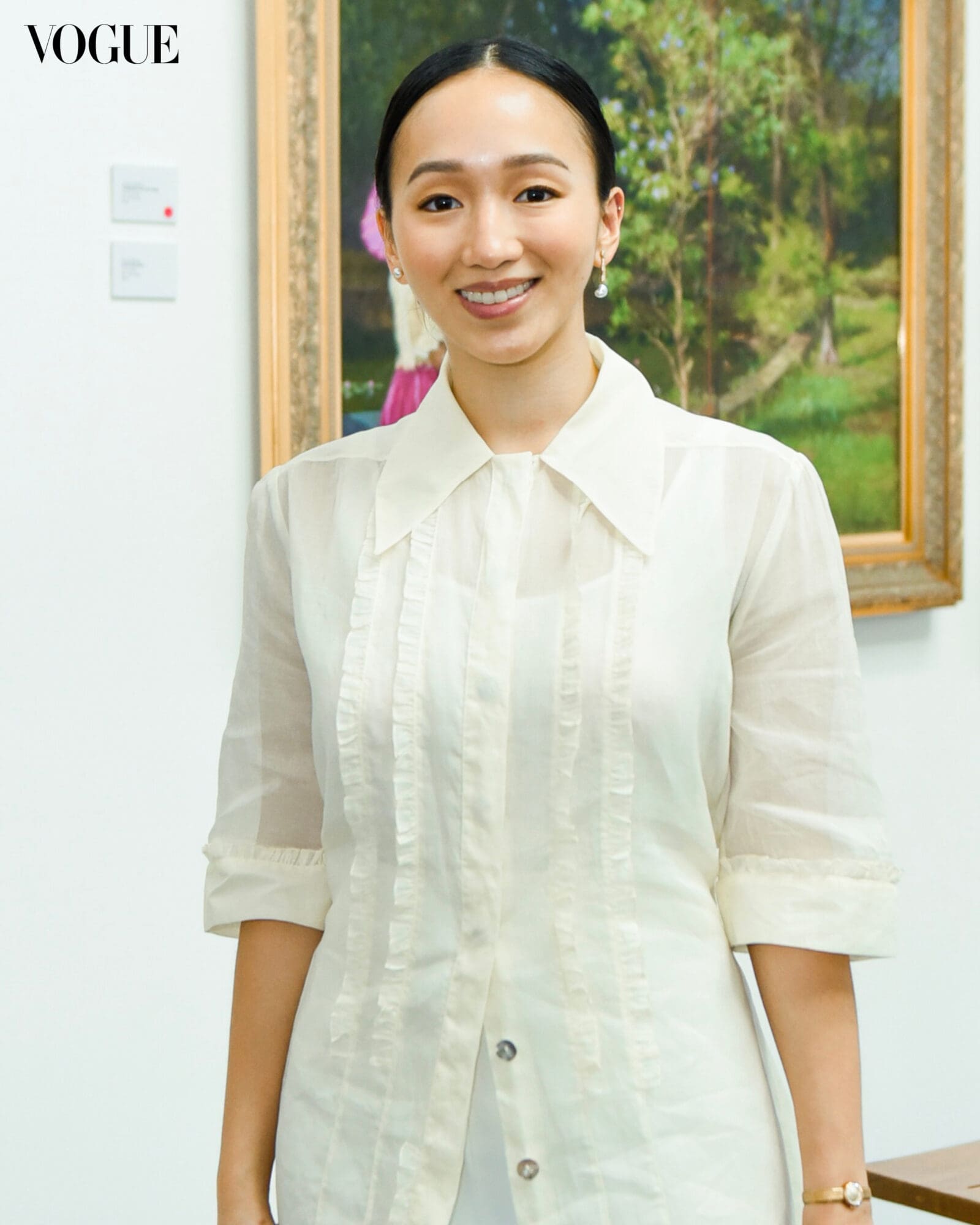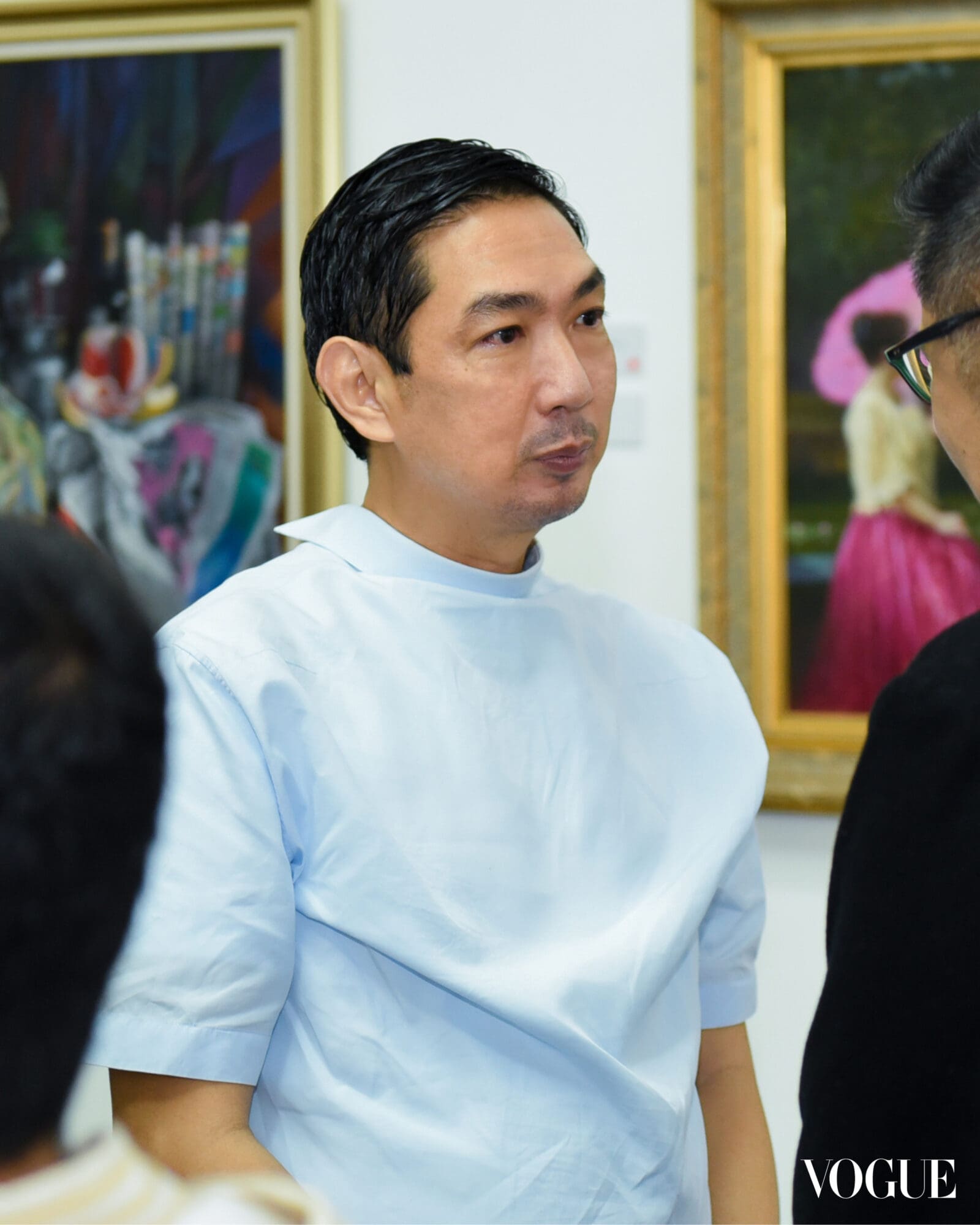Marian Pastor Roces. Photo by Kieran Punay
The cultural critic and independent curator challenges all too commonly held yet outdated beliefs about Philippine history.
Tribe, Royalty, Blood, Race, Malay. These were words flashed on the screen at the second edition of Vogue Talks with Marian Pastor Roces. “We do have a lexicon, which you may or may not want to use in your lives. But in the time that we’re together, I do not use these words,” she stated.
The cultural critic and independent curator began her talk with these terms to preface the goal of her lesson: to invite the audience to rethink what we know about our Filipino identity and history. “If you still believe that you came from Indonesians and Malaysians, you have to put that in the bin.”
Held at the Altro Mondo Creative Spaces on Chino Roces Street, the intimate event saw a select group of industry professionals gather to watch Roces speak. Designers such as Joey Samson, Russell Villafuerte, Gabbie Sarenas, Esme Palaganas, and more were in attendance amidst other creatives, artists, and leaders, like Mark Higgins, Anna Vitiello, Jodinand Aguillon, Jorell Legaspi, and so forth.
“Contemporary minds such as Marian’s think in ways that transcend the confines of words and ideas like race, or tribe, or nation – words she professes should no longer be part of our modern vocabulary. She views who we are from a much broader, enlightened perspective,” Mark Higgins said of the established curator.
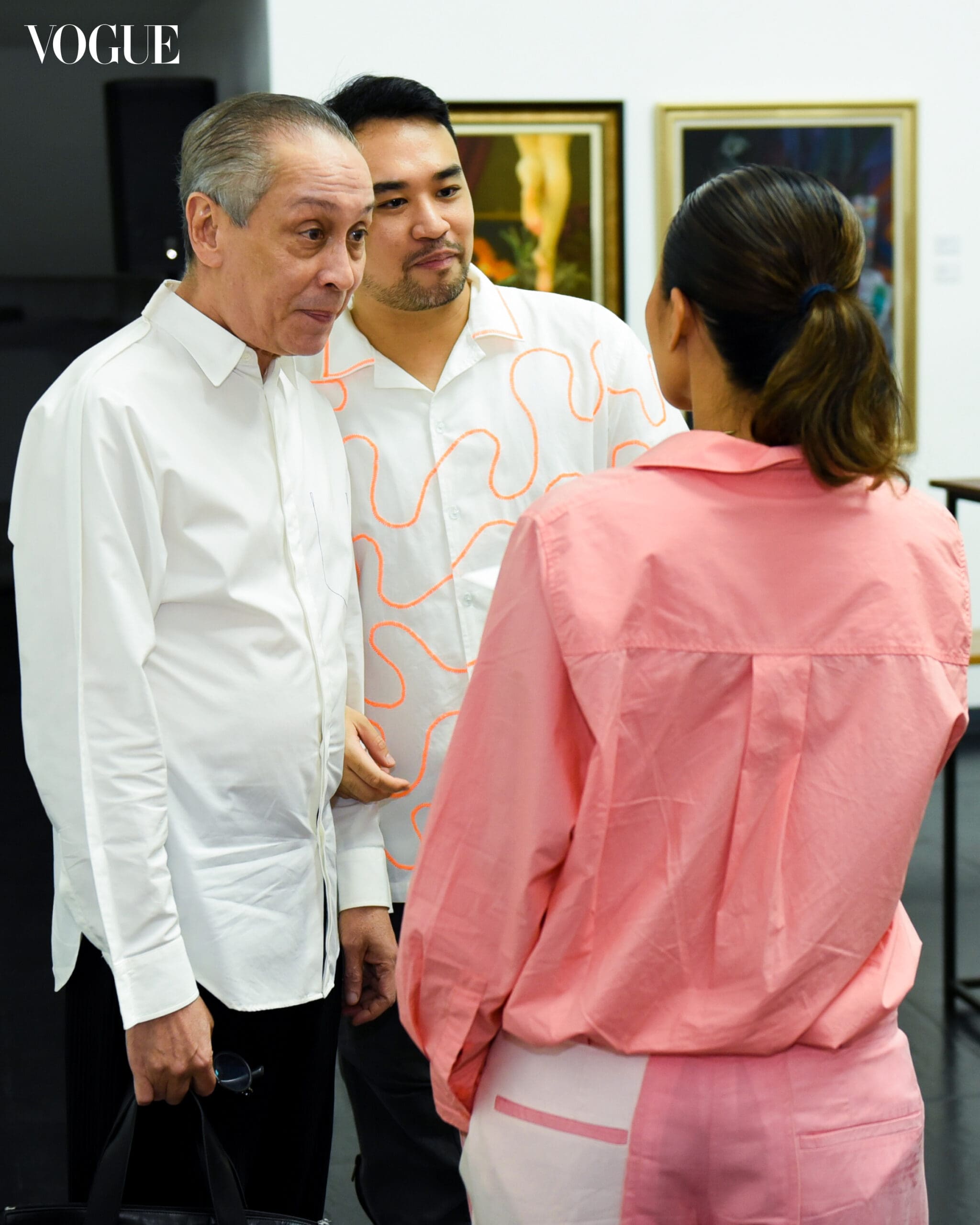
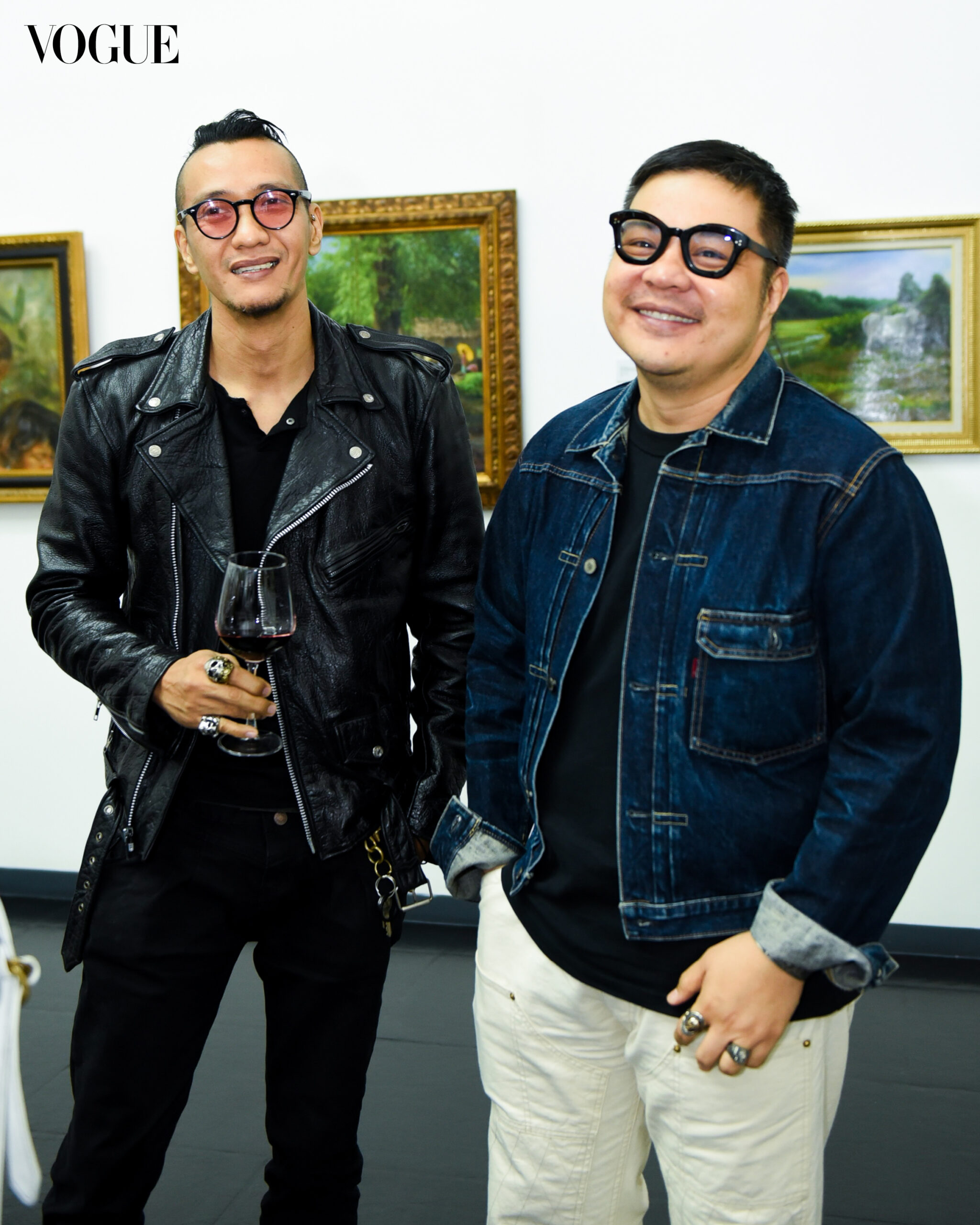
As guests got seated, Roces took her spot at the front and began by introducing herself and her work. “I happen to be the oldest curator in the Philippines. As a matter of fact, it’s been 50 years,” she said.
Her talk focused primarily on redefining outdated beliefs about the Filipino people. Though the topic veered on the academic side, Roces’ spunky and charismatic delivery paired with hard-hitting facts kept each listener closely tuned to her topics.
Roces started off by clarifying the origins of the Filipino people and our nation: that we are in fact Austronesian and not Indo or Malay, and that the ideas around “nationhood” remain nuanced and tainted by our colonial past.
“I always say this to designers,” she began, aware of the profession held by most of the crowd. “The difference between 19th-century nationalism and 20th-century nationalism can be seen in clothes.”
She described late 19th-century Philippine and Latin American nationalism as an imaginary involving proving equality with the European. The barong, the baro’t saya marked a departure from our pre-colonial nakedness—to hence signal the capacity for self-determination.
“Mid-20th century, on the other hand, is a different matter. Mahatma Gandhi made himself a symbol of the emerging Indian nation by taking off his clothes. 20th-century nationalism steers away from emulating the former masters. Gandhi made the point of being non-European,” Roces explains.
“Our nationalism shares that of the Latin American countries. In this view, the nation is a community of mestizos,” she continues. “The culture is mestizaje. Whereas 20th-century nationalism emphasizes local culture and experience.”
Roces went on to show fantastic examples of traditional textiles and jewelry, originally from different parts of the archipelago, but which have been in museum holdings outside the Philippines for more than a century.
The collective impact of antique samples was a provocation: that extraordinary refinement and complexity emerged from Philippine societies that did not produce kingdoms.
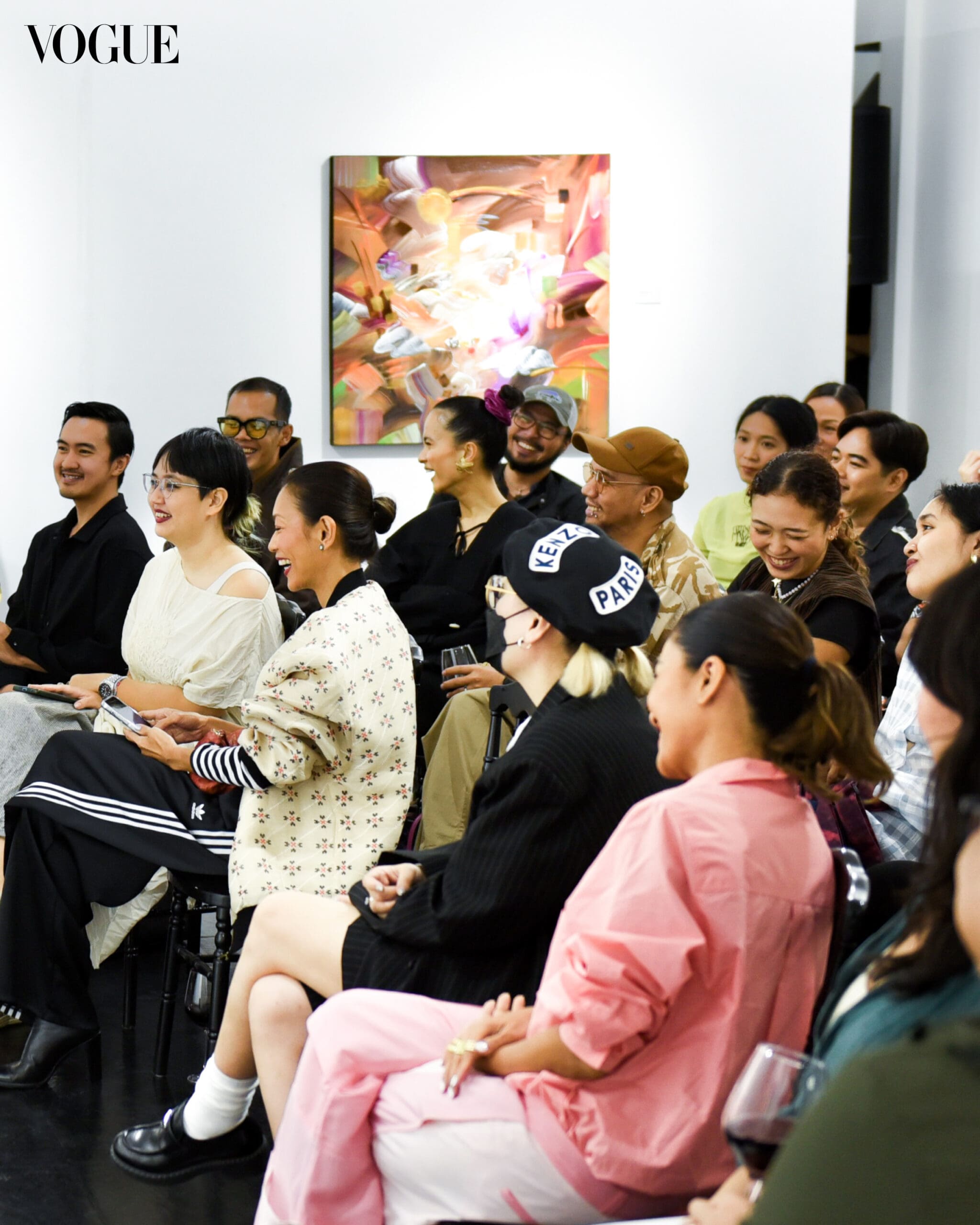
The curator even put forth a sentiment shared by a colleague, that the bronze and iron age hardly applied to the Philippines, because our metal was always gold. In place of kings and queens, individuals and leaders that had proved their worth in society had the honor of adorning themselves with finery. These spanned the likes of intricately woven items, from silks to gold threads and even tree bark.
These new learnings sparked strong sentiments from the attendees. Noli Coronado and Dante Dizon from 13 Lucky Monkeys shared similar sentiments of newfound appreciation. ” I really felt proud to be Filipino, our history lessons just skimmed the surface. Marian shared some hard facts that left me with a feeling of intense pride,” Dizon wrote, while Coronado said he was left with “An appreciation for our craftsmen, and inspiration to craft and inject our Filipino heritage into our current work.”
Designer and creative entrepreneur Esme Palaganas said that it was fascinating to hear Roces speak about the importance of knowing who we are and where we came from. “We have such an elevated sense of pride about ourselves as Filipinos and being able to explore that through the eyes of anthropology, linguistics and more was refreshing. We tell our stories through our designs and Marian Pastor-Roces gave us another inspiring starting point to whatever we might do next!” Palaganas says. “In a sea of contemporary and future-looking, Vogue Talks understands the need to remember/know the past that made us the storytellers (and travelers) we are today.”
Multi-disciplinary artist and entrepreneur Jodinand Aguillon shared that one of his Aha! moments during the talk actually came when Palaganas asked Roces about the efforts being done to return cultural artifacts to their countries of origin.
“Up until today, I was definitely from the school of ‘give us back what’s ours!’ But going back to the question of repatriation, Roces says that it will have to take place as different individual cases—no single template.” Aguillon understood that it will take time.
“For the first time in six years, since I saw those pieces at the Field museum, I suddenly sit with a bit more ease knowing/accepting that parts of our past is in ‘good’ hands (kahit not our own hands),” Aguillon concludes.
Though this information marked a deep sense of loss, it also highlighted a sense of pride that many lack without understanding how rich Filipinos were as a people.
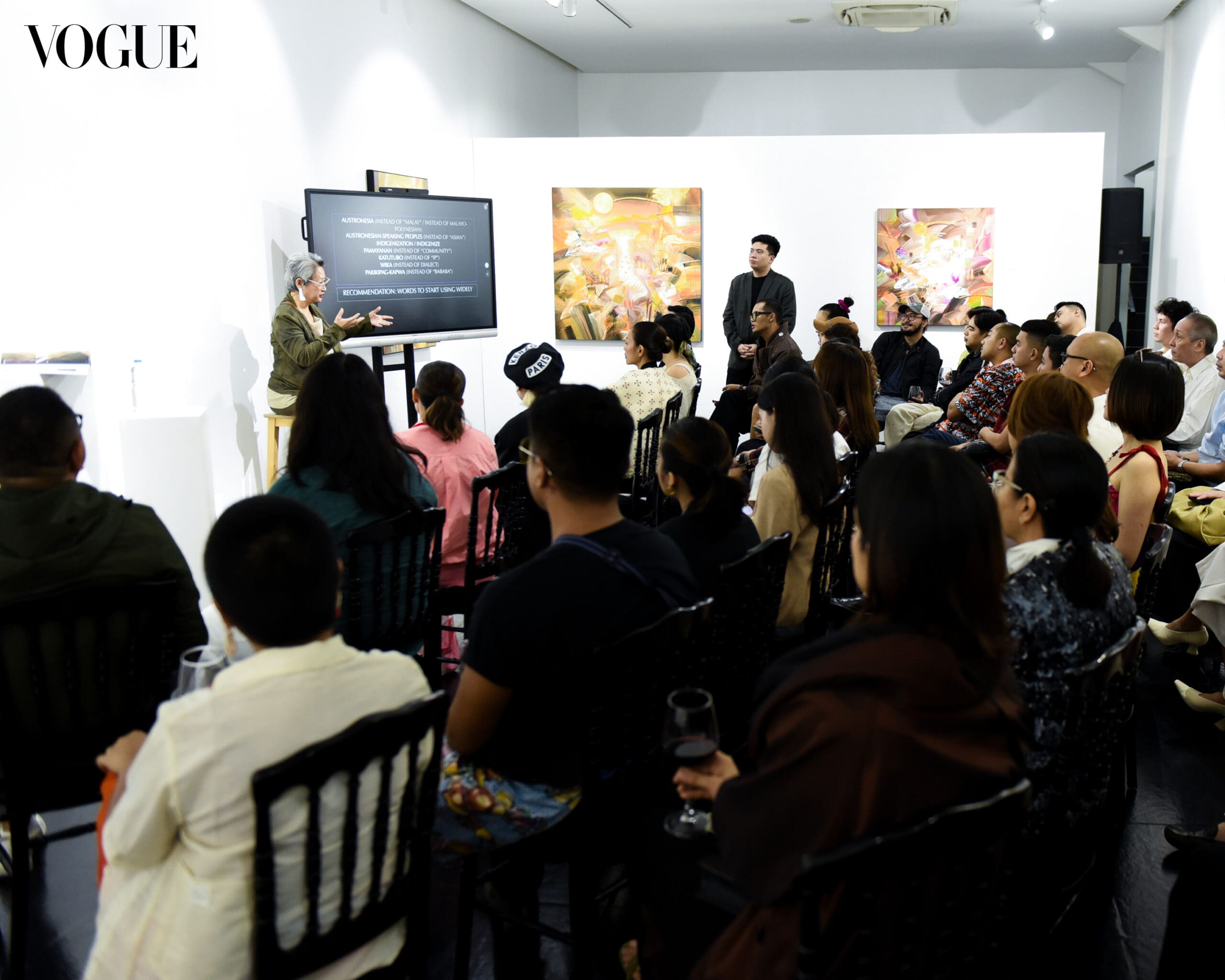
Roces concluded her talk by saying that even beyond nuanced arguments about identity and our past, the main point she wanted to fight against was ignorance.
As the talk drew to a close, audiences left with a new sense of their past, perhaps questioning their own deeply ingrained beliefs for the better.
- Vogue Talks Launches With Photographer Sharif Hamza
- Agnes Locsin’s Encantada Has An Important Message On Conservation
- Vogue Philippines’ Second Mystery Dinner Hosted Tony Award Winner Clint Ramos
- Jonathan Anderson On Achieving Longevity in Fashion: “You Must Be Able To Run A Marathon Of Creative Sprints”
